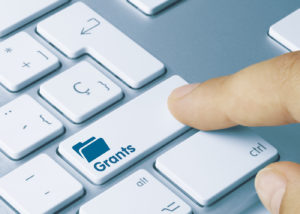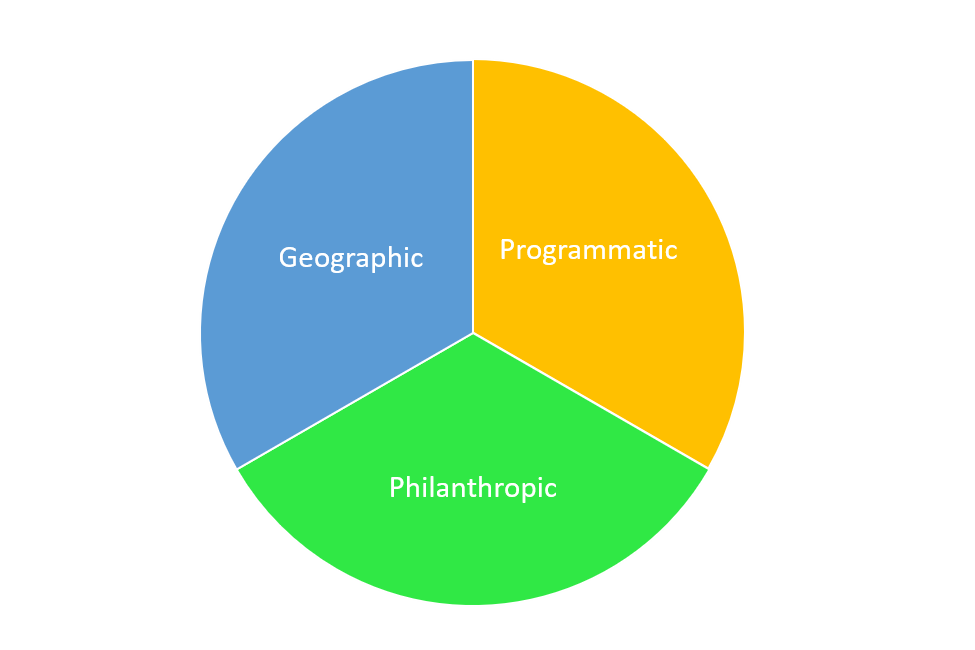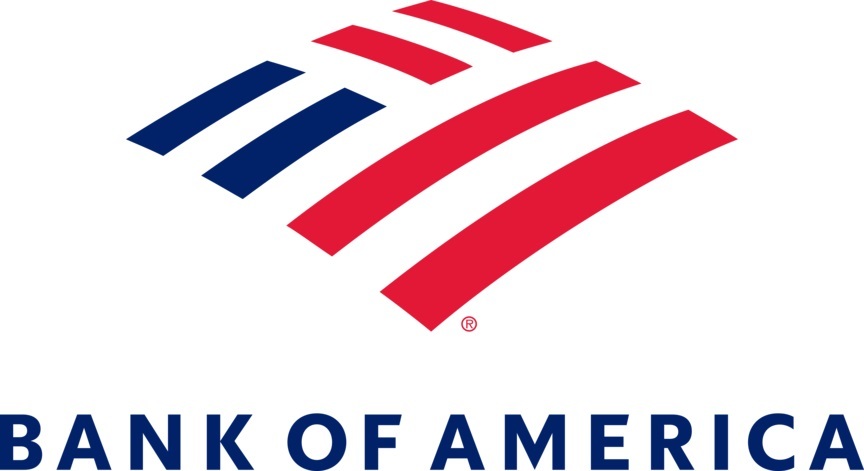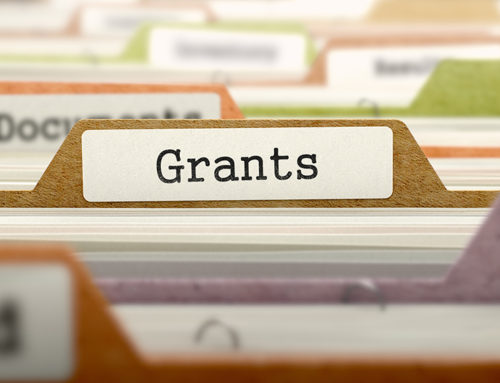
“Where do I look to find grants for my nonprofit?”
It’s a burning question so many nonprofits have, and to be honest, I can’t say that I blame them!
Getting grant funds is REALLY exciting!
For one, it’s usually a lot of money. Think about it: what could your nonprofit do right now with a $5,000 check??
I bet a few different things just popped in your mind, didn’t they?
Also, getting a grant means a funder values your nonprofit and trusts you’ll put their money to good use. Knowing this makes you stand a little taller and gives you a boost of confidence – and that’s something we all need occasionally.
Conducting research to find grants and funding opportunities is definitely the place to start if you want to be successful at getting grants and separating yourself from the strugglers.
It can be tricky, though, and very time consuming if you aren’t sure where to look – and your time is valuable.
To get the most out of your efforts, you need to know what you’re looking for and how to look for it.
That clarity will save you a ton of time and effort.
So we have awesome tips and tricks to help get you started down the right path to making your research more fruitful as you find grants!
A Grant is What We Need (or is it?)
For some reason, and I’m not sure how this ever got started, some nonprofits think grants are a magical solution that will solve all their problems.
Like it’s free money just waiting to be plucked from a tree.
Unfortunately, this line of thinking couldn’t be farther from the truth.
Grants aren’t really that easy to get and there’s a lot involved in managing a grant properly – LOTS more than just saying ‘thank you’ to a funder.
Plus, grants are never guaranteed from year to year.
If you’re reading this article thinking, “We’ll just go get a grant for what we need,” I highly encourage you to question that intention.
Sure, grants can be an awesome source of income for your nonprofit, when it’s for the right reasons and at the right times.
Here are a few circumstances when grants are not the best solution:
- When you’re getting started
- When you need money fast
- For ongoing funding
- For urgent needs
- For administrative costs or payroll
To read more about these reasons (and a few others) and why grants aren’t ideal for those situations, click here.
Now, if you’re not quite ready to go after grants, that’s ok! Spend time building your donor base by doing things like online fundraisers, fundraising appeals, starting a monthly giving program, and finding new donors.
If you feel you’re ready for grants, by all means, get going!! And here’s how you can do just that.
What You’re Looking For
Before you start researching to find grants, it’s imperative that you know what you’re looking for.
Going through this short checklist helps you get ready to go after grants, especially if your nonprofit is new, young, or small.
 1. Create a list of needs. Make sure you understand what you wants funds for exactly. To do this, sit down with your leadership team and program folks to generate a list of needs for the upcoming year.
1. Create a list of needs. Make sure you understand what you wants funds for exactly. To do this, sit down with your leadership team and program folks to generate a list of needs for the upcoming year.
Include things that are very specific to programming, like supplies, materials, mileage for an existing program, or startup funds for a new program.
Also think about costs that are more general to the organization like funding your overhead.
Keep brainstorming until you can’t think of anything else you might need money for.
2. Prioritize your list. Once you have your list of needs, figure out which ones are the most important.
Perhaps there are a few items that rise to the top of the list?
Or maybe your Executive Director or Board wants you to focus on certain ones?
How ever you choose to prioritize, just be sure you understand which items come first.
3. Determine costs. Next, put some dollar signs next to those costs. While it’s important to know what you need to fund, knowing how much you need to fund is important too.
Don’t guess how much supplies or staff will cost. Do the research to find out exactly how much you’ll need to pay for everything.
4. Rough out a timeline. When do you need to have the money in-hand?
This is important because the grant process can take a lot of time – from research and pulling together your submission to awaiting notification and then getting the funding (if approved!), this could take weeks or months.
Pad your timelines to account for this. If you need money next week or next month for a program, a grant is probably not the best option for funding.
How to Find Grants That Are a Perfect Fit
Once you have an idea of what you need to fund, what it will cost, and when you need the money, it’s time to find the perfect grant opportunities for your nonprofit.
Not every funder will want to give you grant money, so it’s important to refine your research so there’s a high probability that the grants you choose to apply for are a good match for your needs.
1. Know which kind of funding you need. There are grants out there for programs, general operations, projects, and capital – but not all funders award all of these.
Some focus only on program and project support, while others may offer general operating support (these are not as common, though).
Get clear on the type of funding you’re seeking.
Perhaps it’s a program grant to cover costs of running your homelessness program.
Maybe you need grants to carry out a specific project like building a playground for your domestic violence shelter.
Or maybe you’re looking for general operating support so you have money to help pay monthly bills.
 2. Use the 3-Way Fit Test. The ultimate goal of grant research is to find funders who are highly likely to fund your work. How do you do that?
2. Use the 3-Way Fit Test. The ultimate goal of grant research is to find funders who are highly likely to fund your work. How do you do that?
Use our 3-Way Fit Test to begin weeding out leads that don’t need to be on your prospect list because they’re simply not a good match. Here’s how to do that.
Below are 3 ways that your program/project can match a funder’s interests.
You need a “yes” to each one before adding that funding prospect to your final prospect list and your grant calendar – thus, meeting the 3-Way Fit Test.
- Geographic Fit– Funders typically choose to support nonprofits located in certain geographic areas. This may be a city, region, state, or country. When researching, if you find they don’t fund the area you serve, you’re not very likely to get a grant, so I wouldn’t consider them. But if they fund nonprofits in your city, for example, it could be a match!
- Programmatic Fit– Consider a funder’s mission, goals, and areas of interest and make sure that what your nonprofit does aligns with these. Otherwise, you’re not likely to get a grant. Let’s say you run a youth development program, and you find a funder whose priority is youth. It could be a match! But if you run a spay/neuter program, it’s not a good match.
- Philanthropic Fit– Find funders who want to give away the type of funding you’re looking for, whether it’s programs, projects, general operating support, capital, or something else. If you need money to expand a program and they provide grants for program development, it could be a match! But if you’re looking for general operating funds and they only give grants for programs, you might not be so lucky.
3. Get to know the funder – Take time to really dig into the funder’s information to learn what types of nonprofits they like to fund.
This is one of the most important keys to being successful with grants.
Determine whether or not they’re a “hand-in-glove-fit” for your nonprofit’s funding needs.
Look at who they’ve funded in the past by reviewing their IRS Form 990 (you can find these on Candid) – this is always a revealing place to start.
Also, don’t forget to review the funder’s grant guidelines, eligibility criteria, and Frequently Asked Questions (FAQs) if they have a website.
4. Make connections – After reviewing the information above, reach out to the funder and ask any clarifying questions if doing so is permitted by the funder (and they’ll explicitly state this in their guidelines or on their website).
Here are a few questions to get you started:
- What is an appropriate ask amount for a nonprofit who has never been funded by your foundation?
- What is your process for selecting who you fund?
- I’ve reviewed your website but would like to confirm: Are the submission instructions you’ve listed accurate or have there been any recent changes?
The answer to these questions not only give you more clarity about the funder, but also get you started with a relationship.
Sometimes that one phone call can give you a leg up when it comes time for the funder to review grant proposals.
So now that you know a little bit more about what you’re looking for and how to look for it, let’s dive into where you’re going to find grants and funding opportunities without spending a ton of money to do it.
Where to Find Grants for FREE!
Beginning your search for funders can be overwhelming. Fortunately, there are numerous free tools available online to help with prospect research. Here are 5 of our favorites.
1. Online Grant Research Databases
Grant research databases can help you narrow down your search and with a keyword search, you can find the funders best suited for your nonprofit. For example:
Another popular grant research tool is GrantStation. Although it’s not free, TechSoup runs promotions from time to time, enabling your nonprofit to get it for super cheap!
2. Newsletters
I make it a point to subscribe to several email newsletters to stay on top of the newest grant opportunities available. Here are some of the ones I read:
You can also sign up for newsletters from funders that are on your radar. These can help you stay in the loop on their latest goings on and deadlines.
Not every funder offers a newsletter, but for the ones that do, you’ll love getting inside info and advance notices.
3. Banks
Many banks have their own giving programs and foundations. But did you know they also manage foundations too?
Sometimes, private and family foundations will hire a bank to handle their philanthropic business, taking the burden off their Board of Directors.
For the banks listed below, you can search online to find the foundations they service. If you find one that’s a good fit for your nonprofit, you can apply through their grant portal (conveniently located on the same website).
As you’ll see when you click on the links below, the banks offer tools on their website that are set up like databases – enabling you to search the foundations by state or program area (health, human services, etc.).
4. Search Engines
The resources I’ve shared so far are really comprehensive, and you can spend hours combing through them – which is not a bad thing if you’re truly focused on finding grants and funding opportunities that are a GOOD MATCH for your nonprofit.
I usually conduct about 10 to 12 hours of research for our clients and come up with about 14 or so prospects that align well with and match their needs.

One of the easiest free tools to find grants is through a search engine like Google, Yahoo!, and Bing.
When you use one of these, focus on using keywords or key phrases that include the type of thing or program you’re wanting to fund (art, horses, mentoring programs, etc.) and a location where the money will be used.
The more refined you make the search, the more relevant results you’ll get.
So, search for things like:
- Grants for youth programs in Connecticut
- Grants for domestic violence nonprofits in Salt Lake City
- Capital grants Detroit
- General operating support grants Auburn, AL
- Health care grants Orange County, CA
See how that works?
Now, you may not find as many leads as you do with searchable grant databases, like Foundation Directory, but there may be a few gems you uncover that can turn into funding for your nonprofit. It’s happened to me before – plenty of times!
In fact, I came across a really good prospect not long ago when looking for grants for environmentally-friendly volunteer service projects for a client. I’d exhausted my searches of grant databases and the banks, and I’d looked back through all the newsletters I keep. But when I searched on Google, I had something pop up about an AARP Community Challenge Grant. Upon closer review, it was a great good fit for the client! Had I not done a quick internet search, I would never have found this opportunity.
By the way, using Google Advanced Search can help you narrow down your search, too.
It prompts you to plug in more detailed information than you would with Google’s simple search bar, and then you can refine your results by language, region, and more. So, don’t forget about this tool when you’re doing internet searches!
5. Word of Mouth
Never dismiss the effectiveness of spreading the word to help find grants!
 Your Board of Directors and volunteers can be a wealth of resources when you start doing grant research. While every lead they send your way may not turn out to be a solid prospect, it doesn’t hurt to ask – does it?
Your Board of Directors and volunteers can be a wealth of resources when you start doing grant research. While every lead they send your way may not turn out to be a solid prospect, it doesn’t hurt to ask – does it?
To help them be the most help to you, let them know you’re putting together a list of potential funders you’d like to research to see if they’re a good fit for your nonprofit and your needs.
Ask your Board and volunteers if they have connections with foundations, corporate foundations, etc. who might be interested in funding the type of programs and projects you do.
If one of them does, ask if they would be willing to introduce you to the contact.
Be sure your Board member or volunteer understands that you’re not asking them to put pressure on their contact or try to influence them in any way. You just want them to make a connection because that alone can make the difference in whether or not you get a grant.
Of course, you’ll also want to confirm for yourself that the lead is a good match for your nonprofit before you get too excited.
What about AI?
The latest advancements in Artificial Intelligence (AI) is certainly taking the world by storm!
So many of us are trying to understand and sort through the endless possibilities of help it can give us – even with fundraising and grants – because there seems to be so much potential.
When we asked an AI tool, “How can I find grant opportunities using AI?” this is what it told us:
- Researching funders – AI can sift through large amounts of data to generate a list of potential funders. For example, you can use Google Bard to ask which private foundations are most likely to fund your nonprofit organization
- Analyzing grant opportunities – AI can categorize grant opportunities based on keywords and topics. This can help researchers find grant opportunities that might have otherwise been missed.
- Identifying possible funders – AI can help identify potential funders that match a grant seeker’s goals and mission.
- Tools – Grantboost, ChatGPT, Granted AI, Granter.ai were mentioned.
As fantastic as AI seems to be in making things easier for us as human beings, don’t make the mistake of thinking AI will find perfect grant opportunities for you.
That’s not how it works.
You’ll still need to review and refine any results you get based on your organization’s needs and values, so be prepared to do that.
The Bottom Line
Knowing where to find grants is critical if you want money to pay for programs and projects.
Being strategic about research makes all the difference in the world, and knowing where to look and what you’re looking for will minimize wasted time and maximize the number of best matches for your nonprofit.
And THAT will increase your chances at getting grants for your nonprofit.
The Get Fully Funded team helps small, and growing nonprofits with their grant needs, including grant research, grant writing, grant coaching, grant readiness, and grant review. Our team of grant writers has secured millions of dollars in grants from government entities, corporations, and foundations for a variety of nonprofits. If you’d like to talk to us about getting help with grants, please click here fill out our short form and we’ll get back to you with next steps.

 database currently accepting applications. You can search by state, county, program area (animal-related, education, housing/shelter, etc.), or keyword.
database currently accepting applications. You can search by state, county, program area (animal-related, education, housing/shelter, etc.), or keyword.






Thank you so much for sharing Grant Gopher as a resource! We are very proud to provide the Lite (free) version of our service so even the newest and smallest organizations can start to learn more about the various grants available. The funding landscape can be pretty overwhelming.
You’re so welcome Rache! Thanks for providing a great service!
HOW CAN OUR NON PROFIT MAKING FOUNDATION GET GRANT TO CURRY ON SUBSTANCE ABUSE PROGRAM, MORE ESPECIALLY FOR THE ADDICTS WHO ARE IN PRISON (KENYA)
ANY ASSISTANCE PLEASE WILL BE HIGHLY APPRECIATED
Start by researching grant opportunities to see what foundations are out there that want to fund the kind of work you’re doing. Not all of them do. Start with the ideas outlined in this article.
Good day Im working for an NGO that raises awareness and prevention on Substance Abuse and Gender Based Violence within communities. we are based in Gauteng South Africa, we have 2 volunteer professional Social Workers and 10 volunteers basically the organisation is running on a zero budget the staff is very committed our Auxiliary Social Worker is visually impaired and she is responsible for the part of GBV and Disability. we don’t have equipment to assist her.
We are looking for any assistance that will help us to continue with the work and educate our communities.
Regards
Ntaoleng Molefe
Thanks for reaching out. We don’t give money away – we teach people how to raise it. Read through these articles – there are hundreds of ideas to raise money for any good cause.
how do you overcome the new stigma. we are a new non profit but don’t have the 3 year minimum financial history to meet the grant application guidelines. Are there grants out there for start up Organisation?
Not many. They’re hard to find and usually have some kind of special situation (like you knowing someone on the foundation’s Board). That’s why we recommend you start fundraising by focusing on donations from individuals. It’s faster to get that ball rolling.
I have read your information and you have given me the guidance.
Iam a headteacher of a primary school in Uganda my total number of pupils are 1105. The school has no enough classrooms .We had made a project proposal coasting $34’050 . for the construction of a 4 classroom block with the headteacher’s office. I would like to know from you
The address where I can get the grant
Thank you
I remain
Leonard Atagwirweho
+256782694211.
Hi Leonard. Sounds like a real need. We don’t give away grants. Use the info in this article to find grants for your school.
That’s gooo.need grants to empower needy women to upgrade there living also to enlightened them that they are valuable
How do I look for grants to fund an organization for single fathers ?
Use the ideas in this article to get started. Search using “single fathers” as a keyword. Check with your local library to see if they have the Foundation Center database (called Candid now) and use it. It’s a powerful tool that can help you find any grant opportunities that are a good fit.
Are there funds that support people or groups who want to make face masks for people who live in assisted living homes or other environments like this?
There have been LOTS of new grants pop up during COVID-19, so it’s possible. Remember that most foundations support 501c3 nonprofits, not individuals.
I’m looking for a grant for two main reasons. (1) To be able to start a At-Home Bible Study (2) To be able to start a private church singing group. Please tell me all that I need to do and all that I need to contact. I’m very serious about these missions/ministries and want it to turn out to be a great success – just need help with getting the funds to get them started.
Hi Rickey, definitely take advantage of all the grant resources here on the website. There’s a LOT here to help you figure out where to start to get grants.
Hello
Please I want to know if there are grants that support project for poultry farming .
I’m sure there are. Start with the resources listed in this article and see what you can find.
I am from Arusha Tanzaniana.
Can I apply for such individual grant ?
If you can find funders that are willing to give grants to individuals, you can apply. There aren’t many out there unfortunately.
[…] Visit site > […]
I’d add to the list Instrumentl – we have a 14-day free trial that you can get a lot of value out of whether or not you decide to upgrade afterwards.
We set up active grant searches based on what your nonprofit is looking for funding for, and ping you when there are new matches. This makes it so that grant writers only have to focus on active opportunities, instead of having to sift through both inactive and active opportunities.
Thank you for highlighting this additional resource!
The obnoxious culture of making wealth by the youth of our generation has become so alarming especially our female youths have sold their pride for nothing, God is calling them to himself.that is why we set up this foundation
Love this site!!! Will definitely rely on getting more valuable information…and will share this!
Thanks so much! We appreciate it.
Great read. Thx
Progressive information. Green Hope Share is an NGO based in Zambia and our focus is child education, youth empowerment and WASH .How can we be linked to international volunteers with expertise in the areas mentioned?
George, look for groups that specifically help volunteers find organizations like yours.